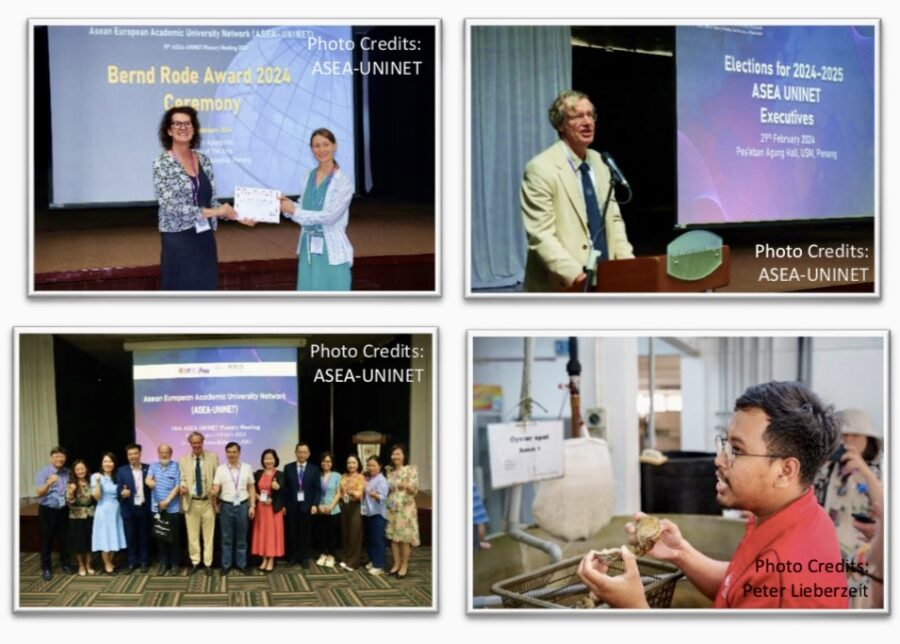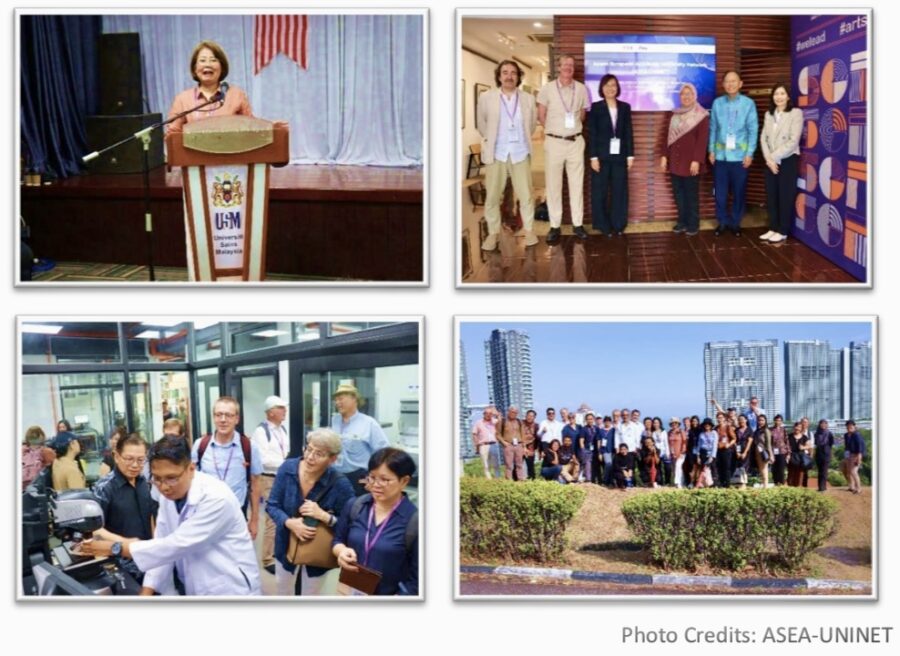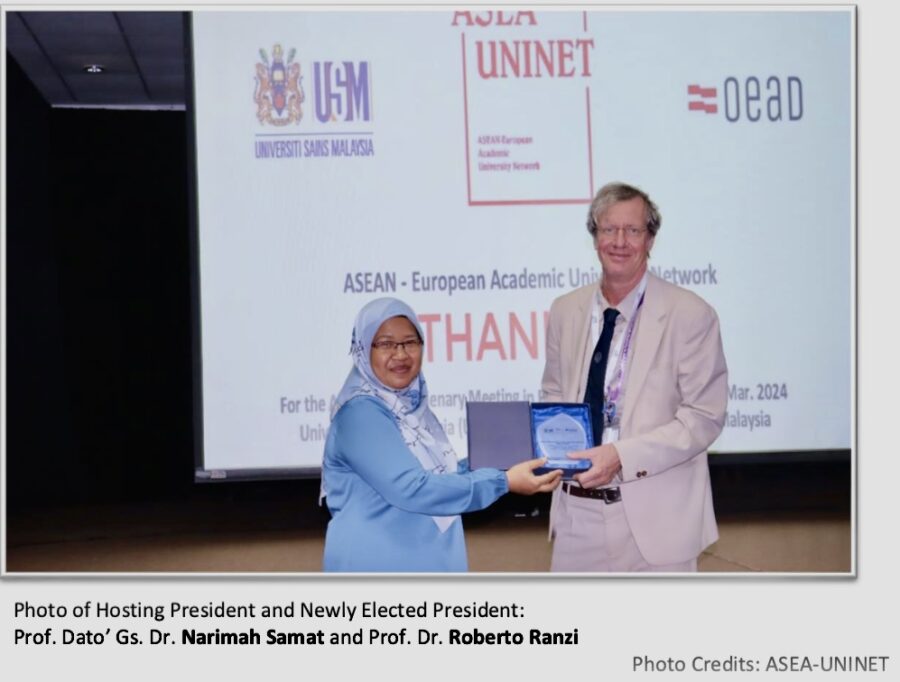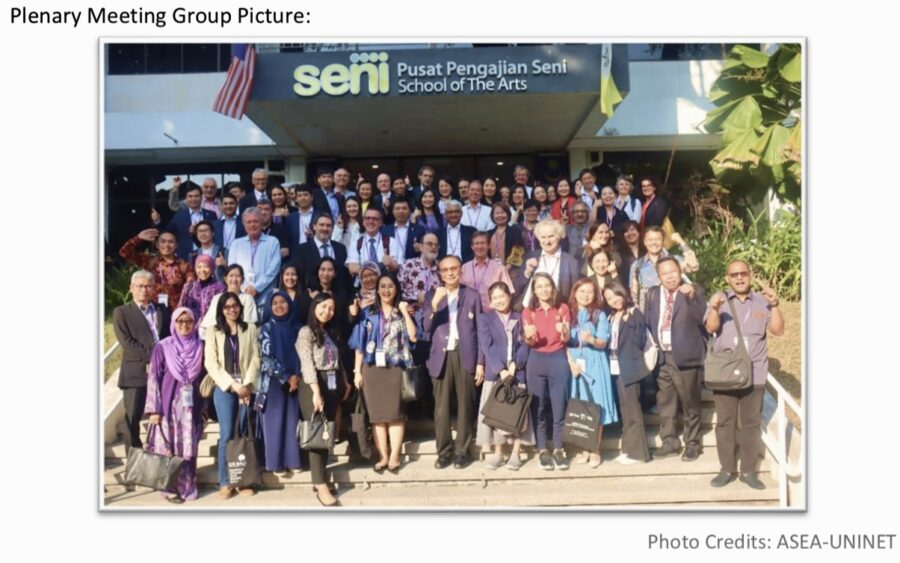The Plenary Meeting as a platform for collaboration, innovation, and knowledge exchange. Founded in 1994 by Austrian and Southeast Asian universities, ASEA-UNINET acts as a role model for cooperation and quality research between Europe and the ASEAN region and today encompasses 90 institutions from 15 different countries. The network aims to build its success on equal footing in collaboration and by fostering scientific and intercultural exchange.
The President of ASEA-UNINET 2024, Prof. Dato’ Gs. Dr. Narimah Samat, greets honorary guests and participants of the network’s 19th Plenary Meeting. Every year, more than 80 bilateral and multilateral research projects take place within the network with new ones also continuously being started. Scholarship and project calls are opened every year, and there is a continuous desire to grow in these areas. Samat emphasises that there is no limit to academic collaborations with these taking place in multidisciplinary disciplines.
Reports by the following participating National Coordinators and by the OeAD are presented:
- Austria,
- OeAD – Austria’s Agency for Education and Internationalisation,
- Indonesia,
- Italy,
- Malaysia,
- Pakistan,
- Philippines,
- Thailand,
- Vietnam
Kotsis (the National Coordinator for Austria) thanks Samat and expresses appreciation for her stewardship as an active Network President of the current term, and for the meticulously organised Plenary Meeting with fruitful discussions and mutual exchanges. Prof. Dr. Roberto Ranzi (Rector’s Delegate for International Affairs, Department of Civil, Environmental, Architectural Engineering and Mathematics at the University of Brescia in Italy) is nominated for President of ASEA-UNINET 2024-2025. Ranzi as new President delivers an address to the Plenary Meeting participants. After thanking the hosts at USM and expressing gratitude for an excellently organised Plenary Meeting, Ranzi invites coordinators to be in contact with National Coordinators regarding considerations for new roles within the newly established Strategic Advisory Team. Tribute is paid to the founder of ASEA-UNINET, Prof. Dr. Bernd Michael Rode, who was a visionary in his ideas. The network has grown considerably since, and the current challenges it faces can be tackled with much input from the exchanges during events including the Plenary Meeting. Addressing some of the programme contributions made, Ranzi appeals to take advantage of artificial intelligence while remaining human; to embrace STEAM and thereby value technology while preserving the Arts; to transfer capabilities to students in an emotional teaching environment for vibrancy and a love of learning; to be guided by lessons learned from the pandemic; and to improve our collective capability to cooperate in an equitable fashion in the context of Global North-Global South relationships. With a common vision within the network, an appeal to members is expressed to focus efforts in peaceful and sustainable development on the unique planet that is collectively shared.
Samat as host and outgoing President expresses gratitude for the input and support throughout the Plenary Meeting, which enabled an enriching experience in terms of the network and its many collaborations occurring within it. She expresses gratitude towards the donors who made the event possible, as well as the many teams and individuals at USM who supported her throughout the organisation.




